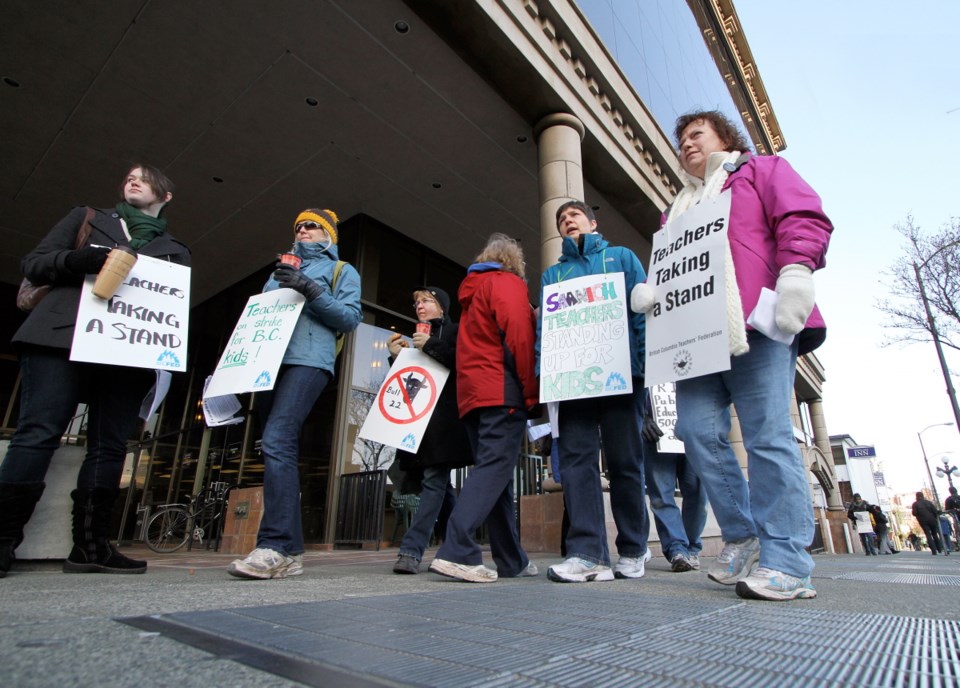School districts can keep class sizes and staffing levels as they are until the B.C. Court of Appeal rules on a dispute between the government and the B.C. Teachers’ Federation.
The Court of Appeal on Wednesday suspended a lower court ruling that restored clauses stripped from teachers’ contracts in 2002.
Justice David Harris said the disruption and cost of implementing the lower court’s decision would cause government “irreparable harm” and justifies putting the ruling on hold pending an appeal.
Harris also temporarily blocked the BCTF from distributing its closing argument in the lower court case. The union’s argument contained references to cabinet documents, and Harris said the government would suffer harm if the material was circulated to teachers in advance of an appeal.
It’s the latest twist in a 12-year legal battle between the BCTF and the government over how much control teachers should have over the size and makeup of their classrooms.
Last month, B.C. Supreme Court Justice Susan Griffin ruled — for the second time — that the Liberal government had used unconstitutional legislation to interfere with teachers’ right to negotiate working conditions.
She ordered the government to restore contract clauses that require smaller classes, put caps on the number of special-needs students per class and boost the number of counsellors, librarians and other specialist teachers.
Griffin concluded that the government failed to negotiate in good faith with teachers in 2011-12 because it was preoccupied with a strategy of provoking a full-scale teachers’ strike so that it could impose legislation.
The government immediately appealed Griffin’s ruling, arguing that she misinterpreted higher court decisions and put the union’s interests ahead of students’ needs.
The government also sought to suspend the order restoring the 2002 clauses, claiming it would cost millions of dollars to hire more teachers and build more classrooms.
The three school districts in the capital region estimated that they would have to hire nearly 140 teachers and add dozens of classrooms or portables at a total cost of $16.6 million.
The BCTF offered to wait until fall before enforcing the decision, giving school districts and the government time to plan.
The Court of Appeal, however, ruled in the government’s favour.
Premier Christy Clark welcomed the decision. “For me, really, we want to get to a settlement. I want to make sure that we get to stability in schools in the long term and I think that’s something that everybody — whatever side of the bargaining table we’re at — wants to get to.”
BCTF president Jim Iker said the union would push for a quick hearing before the Court of Appeal. “We hope that it happens sooner rather than later so we can have some certainty heading into the next school year,” he said.
Teresa Rezansoff of the B.C. School Trustees Association said the decision to suspend the lower court ruling recognizes “the disruption that would have been felt by the public education system and boards of education had there been immediate implementation.”



